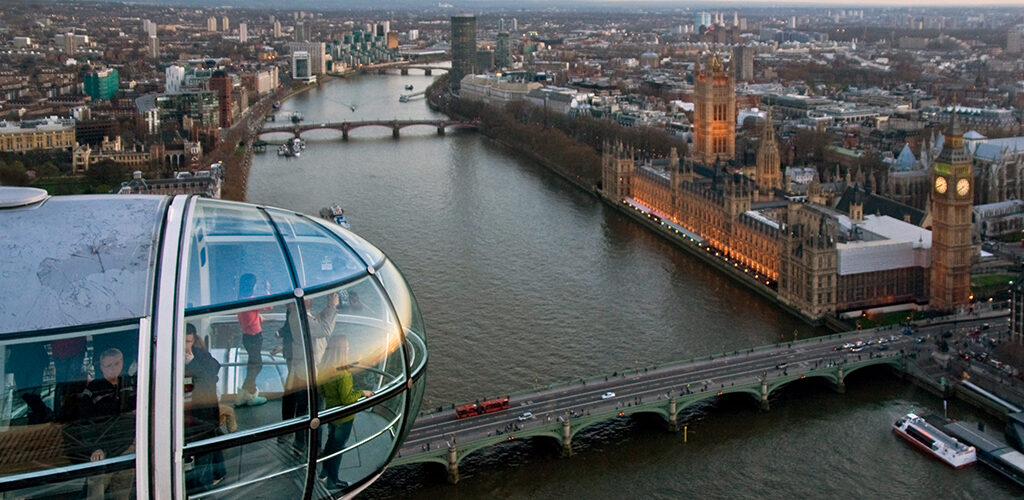The POST: scientists, researchers, collaborators, innovators

This article is Part II of III of our POST interview series.
Eloise Johnston recently spoke with Dr Abbi Hobbs from the UK Parliamentary Office of Science and Technology (POST) in London, which provides Parliament with an independent, accessible and balanced analysis of public policy issues related to science and technology.
The first part of this interview 1 with Dr Abbi Hobbs looked at how POST is organised, the areas of research being focused on at the moment, and the importance of the peer review process.
In this next section, we discuss Dr Hobbs’s background and her work in the social science department of POST, the relationship between POST and the European Parliamentary Technology Assessment, and the challenges and demands of research in a political context that expects instant responses.
theGIST: Dr Hobbs, you work within the social sciences department at POST. Why are you working in this specific department and how did you come to work for POST in the first place?
Dr Hobbs: I did a fellowship for POST when I was doing my PhD, which was in science and technology studies, and I did a note on futures and foresight 2. I then come back a few years later to do some consultancy and cover one of the advisers while they were on secondment.
POST advisers had always addressed social science evidence within other topics to some extent, but in some cases, I think they felt that they were relying quite a lot on the external peer review process to make sure that it was up to the same standard as the other literature. Then, about 18 months ago, in partnership with the Economic and Social Research Council and with the support of University College London, POST established a dedicated Social Science Section to provide parliamentarians with more access to social science research evidence.
As well as making sure we are integrating social sciences into policy areas based around science and technology, we are also widening the remit of POST slightly into other areas of public policy, which are not grounded in science and technology as it’s usually defined, but where there is a strong research evidence base that is coming substantially from social sciences. For example, take living standards where there’s obviously a lot of research written about it, but you wouldn’t primarily consider it a ‘science and technology’ issue.
theGIST: You mentioned that you spent some time with POST during your PhD. Can PhD students still do any research with POST?
Dr Hobbs: Yes, absolutely. At any one time we have quite a few PhD students who are funded to take three months out of their PhD to come work with us on a particular project. These include schemes with most of the research councils, and other funders, such as the Wellcome Trust, British Psychological Society, Nuffield Council on Bioethics – and many others 3.
theGIST: POST works with a number of different bodies and organisations across the UK and Europe. Can you talk briefly about the relationship between POST and the European Parliamentary Technology Assessment (EPTA)?
Dr Hobbs: EPTA is a European body that brings together institutions that advise parliament on the social, economic and environmental impacts of science and technology. EPTA aims to advance the establishment of technology assessment as an integral part of policy consulting in parliamentary decision-making processes in Europe, and to strengthen the links between EPTA units in Europe. There is an annual EPTA Conference, Council Meeting and Directors’ meeting, as well as other meetings around particular areas of work.
The organisations within EPTA are really quite diverse. Some of them are based within the parliament like POST, and others are external to the parliament but they have a special relationship to support their work. They also look at quite different issues and take different approaches to technology assessment. Some member organisations do very big projects over extended timescales and include a lot of public engagement, to understand what the public perception is and to build that into the process, whereas others tend to do more short projects with a quick turnaround. It’s really interesting to see how different kinds of institutional structure can enable and facilitate different forms of support.
So there’s a real variety, and it’s a really strong network and a great network to be a part of, to make sure we understand what’s on the agenda in different parts of Europe and to share expertise and approaches.
theGIST: In supporting the work of Parliament, how do you manage the fact that responses in politics are expected instantly by the public and the media?
Dr Hobbs: In terms of the timeframes over which academic research is conducted and decisions need to be made in policy, there is a disjuncture. Political decisions may need to be made in weeks, days and hours, whereas academics would be more likely to think in months and years to make sure what they’ve done is really robust and they’ve done all they can.
In Parliament, the Libraries in both of the Houses provide a research service to respond to Member’s questions in a very short timeframe. POST’s remit is to look ahead and to provide analysis of research in particular areas, which is relevant and timely to Members of both Houses.
So for POST, we have to think about what issues are likely to come up, based on the policy agenda or through research, and what work we can do to bring in researchers and research knowledge early on. However, we also work closely with Select Committees in both Houses, and that work tends to need a much faster turnaround time. The time you have to do a particular piece of work obviously shapes what the output is – if you need to find out what the research is about an issue in a few hours, it’s going to look a lot different to what it would have looked like if you had a month!
After discussing Dr Hobbs’s role in the social sciences department of POST, the work it does with EPTA and the implications for research in a quick-turn around political environment, in the next and final article we consider the role that scientists should have in politics, and Dr Hobbs offers some valuable advice to young scientists and researchers who want to make an impact on society.
This article was specialist edited by Becky Douglas and copy edited by Jessica Marie Bownes.
References
- https://the-gist.org/2015/07/the-post-what-is-it-why-is-it-there-and-where-does-it-fit-in-with-uk-science-and-politics/
- http://www.parliament.uk/business/publications/research/briefing-papers/POST-PN-332/futures-and-foresight-may-2009
- A full list is available here: http://www.parliament.uk/mps-lords-and-offices/offices/bicameral/post/fellowships/










